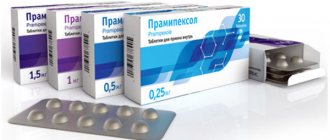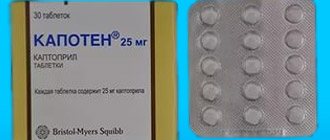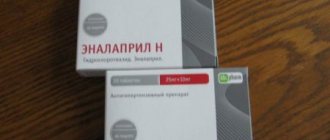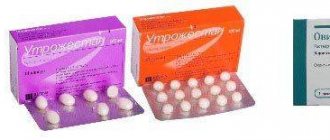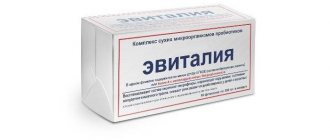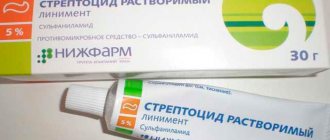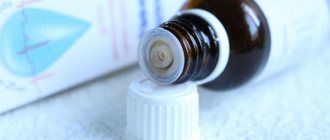Actovegin is a drug that doctors use to treat diseases that are accompanied by metabolic disorders. The drug is registered in the Russian Federation, but is not on the lists of drugs approved for use in Europe and the USA. When prescribing Actovegin, doctors at the Yusupov Hospital take into account the ratio of benefits and harms from the drug.
The advisability of using Actovegin in one or another pharmacological form in a given patient is discussed collectively. Medical personnel strictly follow the instructions for use of the drug, algorithms for performing intramuscular and intravenous injections. At the Yusupov Hospital, only disposable sterile syringes and intravenous infusion systems are used, which prevents infection of patients.
Why was Actovegin banned? Actovegin is banned in Europe because the manufacturer has not conducted clinical studies of its effectiveness and safety. The drug is made from the blood of dairy calves, which, according to European doctors, increases the risk of patient infection with the mad cow disease virus. Some scientists believe that Actovegin has a placebo effect - a “dummy”. The trade name of the drug is Actovegin. There is no INN (International Nonproprietary Name).
Metabolic effects
In diseases accompanied by ischemia and hypoxia, a deficiency of oxygen and glucose develops, which leads to disruption of the synthesis of adenosine triphosphate (ATP) and a decrease in the energy reserves of cells.
Experimental studies have shown that ACTOVEGIN increases the uptake and utilization of oxygen and, as a result, improves energy metabolism and cell resistance to hypoxia [1–4]. In addition, ACTOVEGIN activates the glucose transporters GLUT1 and GLUT4, which, for example, in cerebrovascular diseases can lead to improved glucose transport across the blood-brain barrier [4].
The presence of such a mechanism was confirmed in a clinical study by D. Ziegler et al (2009), in which the administration of ACTOVEGIN in patients with polyneuropathy associated with type II diabetes mellitus significantly led to a decrease in the level of glycosylated hemoglobin (HbA1C) compared to placebo [5].
Indications and contraindications
Actovegin is used if the patient has metabolic and vascular disorders of the brain resulting from a stroke and traumatic brain injury. The drug is prescribed for hypoxic conditions of organs and tissues of various nature. Actovegin is used as part of complex therapy for peripheral vascular disorders and their consequences (arterial angiopathy, trophic ulcers, including diabetic ones).
The drug accelerates the healing of wounds (ulcers of various etiologies, burns, trophic disorders, bedsores, erosive lesions of the mucous membrane of the gastrointestinal tract). Actovegin is used for the treatment and prevention of radiation injuries, damage to the skin and mucous membrane in patients receiving radiation therapy.
Doctors at the Yusupov Hospital do not prescribe Actovegin if the following contraindications exist:
- Individual hypersensitivity to the main active ingredient (purified calf blood extract) or auxiliary components of the drug;
- Pulmonary edema;
- Decompensated heart failure.
The safety of Actovegin during pregnancy and breastfeeding has not been proven by clinical studies. When the drug is administered, allergic reactions may develop (urticaria, Quincke's edema, anaphylactic shock). In this case, stop administering the drug and carry out classical antiallergic therapy with antihistamines and glucocorticoids. For anaphylactic shock, blood substitutes and high doses of corticosteroids are administered.
Neuroprotective effects
Recently, several studies have been conducted to examine the neuroprotective effects of ACTOVEGIN and its ability to increase neuronal survival.
An in vitro study conducted in cultured primary rat hippocampal neurons demonstrated the neuroprotective and regenerative properties of the drug ACTOVEGIN [6]. Typically, the number of cultured neurons decreases sharply as a result of apoptosis. However, after 10 days in culture under optimal conditions, an ACTOVEGIN dose-dependent increase in the number of viable neurons was noted (2.4 times more compared to the control) (Fig. 1).
Rice. 1
Increasing the dose of ACTOVEGIN significantly increases the number of surviving neurons in rats [6]
*p < 0.001 compared to cells that were not treated.
Similar effects have been noted in the peripheral nervous system of rats with severe symptoms of diabetic neuropathy [7]. Administration of ACTOVEGIN at a dose equivalent to the human clinical dosage resulted in a reduction in peripheral neuronal degeneration caused by diabetes mellitus. At the end of the study, ACTOVEGIN increased the density of intraepidermal nerve fibers (IENF) by 32% (Fig. 2) and restored the reduced speed of nerve impulse conduction in the sensory fiber to 91% (Fig. 3).
Rice. 2
ACTOVEGIN significantly increases the density of VENV in vivo compared to the control group [7]
*p < 0.005 compared with the streptomycin/saline group.
Rice. 3
ACTOVEGIN restores sensory nerve conduction velocity in vivo compared to the control group [7]
*p<0.005; #<0.05 compared to the streptomycin/saline group at the corresponding time point.
Preclinical studies have also demonstrated that the effect of the drug ACTOVEGIN reduces the intensity of apoptosis [8]. This effect was dose-dependent (Fig. 4).
Rice. 4
In the presence of β-amyloid 25–35 (apoptosis inducer), ACTOVEGIN dose-dependently reduces the level of apoptosis compared to untreated cells [6]
***p<0.001; **p<0.01.
The effect of the drug ACTOVEGIN on oxidative stress was revealed. As a result of the studies, a significant decrease in the amount of reactive oxygen species, and consequently, the influence of oxidative stress in an environment containing ACTOVEGIN was noted (Fig. 5) [6].
Rice. 5
Tertiary butyl hydroperoxide (TBHP) promotes cellular oxidative stress (A) by dose-dependently increasing reactive oxygen species [ROS]. ACTOVEGIN reduces the manifestations of oxidative stress compared to the control group, which was not exposed to TBHP (B) [6]
***p<0.001; *p<0.05.
Currently, studies are being conducted on the effect of the drug ACTOVEGIN on microcirculation. Some of these works have already been published [9].
Below is a far from complete list of the effects of the drug ACTOVEGIN, established during preclinical studies:
- ACTOVEGIN has a complex pleiotropic mechanism of action with metabolic, neuroprotective and vasoactive effects;
- metabolic activity consists of activating glucose transporters, as well as increasing oxygen utilization, which leads to an improvement in the energy state of the cell;
- neuroprotective activity is manifested in a decrease in the severity of apoptosis and a decrease in the pathological effects of oxidative stress;
- effects on microcirculation include improvements in capillary blood flow and metabolic activity of the microvascular endothelium.
Thus, the metabolic and neuroprotective effects obtained in experimental studies are confirmed by the results of previously conducted clinical studies and indicate that ACTOVEGIN has significant potential for the treatment of diseases accompanied by ischemia and hypoxia, in particular, neurodegenerative diseases.
Press service of “APTEKA Weekly”
Directions for use and doses
Actovegin is available in the form of tablets and solution for injection. Actovegin tablets are taken orally with clean water. Actovegin injections are made intramuscularly, intravenously and intraarterially. The drug is compatible with 0.9% sodium chloride solution or 5% dextrose solution.
Doctors at the Yusupov Hospital set the dose of Actovegin depending on the severity of the patient’s condition. First, 10-20 ml of the drug is administered intravenously or intra-arterially. Subsequently, Actovegin is administered intravenously or intramuscularly slowly. Injections are performed daily or several times a week.
In order to perform an infusion of Actovegin, 10-50 ml of the drug is diluted in 200-300 ml of isotonic sodium chloride solution or 5% dextrose solution and administered intravenously at a rate of 2 ml per minute. In view of the possibility of anaphylactic reactions, an intramuscular test injection of 2 ml of the drug is performed before starting therapy.
Despite the declared safety of Actovegin, the drug is administered to pregnant, breastfeeding women and children if the expected benefit outweighs the potential harm. Usually the drug is well tolerated. An overdose of Actovegin increases the side effects. The medical staff at the Yusupov Hospital keeps Actovegin in the refrigerator. Shelf life – 5 years. The drug should not be used after the expiration date.
In order to undergo a course of treatment with Actovegin, call. Before prescribing the drug, doctors at the Yusupov Hospital conduct a comprehensive examination of patients, determine the presence of indications and contraindications for prescribing the drug. Doctors prescribe Actovegin when they are confident in its safety.
List of used literature
1. Buchmayer F., Pleiner J., Elmlinger MW et al. (2011) Actovegin(R): a biological drug for more than 5 decades. Wien. Med. Wochenschr.; 161:80–88.
2. Kuninaka T., Senga Y., Senga H. et al. (1991) Nature of enhanced mitochondrial oxidative metabolism by a calf blood extract. J Cell. Physiol.; 146: 148–155.
3. Bachmann W., Forster H. and Mehnert H. (1968) Experimental studies in animals on the effect of a protein-free blood extract on the metabolism of glucose. Arzneimittel-Forschung/Drug Research; 18: 1023–1027.
4. Machicao F., Muresanu DF, Hundsburger H. et al. (2012) Pleiotropic neuroprotective and metabolic effects of Actovegin's mode of action. J. Neurol. Sci.; 322:222–227.
5. Ziegler D., Movsesyan L., Mankovsky B. et al. (2009) Treatment of symptomatic polyneuropathy with Actovegin® in Type 2 diabetic patients Diabetes Care; 32:1479–1484.
6. Elmlinger MW, Kriebel M. and Ziegler D. (2011) Neuroprotective and anti-oxidative effects of the hemodialysate actovegin on primary rat neurons in vitro. Neuromolecular. Med.; 13: 266–274.
7. Dieckmann A., Kriebel M., Andriambeloson E. et al. (2012) Treatment with Actovegin(R) improves sensory nerve function and pathology in streptozotocin-diabetic rats via mechanisms involving inhibition of PARP activation. Exp. Clin. Endocrinol. Diabetes; 120: 132–138.
8. Kubo T., Nishimura S., Kumagae Y. et al. (2002) In vivo conversion of racemized beta-amyloid ([D-Ser 26]A beta 1-40) to truncated and toxic fragments ([D-Ser 26]A beta 25-35/40) and fragment presence in the brains of Alzheimer's patients. J. Neurosci. Res.; 70:474–483.
9. Fedorovich AA (2012) Non-invasive evaluation of vasomotor and metabolic functions of microvascular endothelium in human skin. Microvasc. Res.; 84:86–93.
In what cases is Actovegin prohibited?
“Actovegin is prohibited” only in one case - when it is used not according to its indications for use. Therefore, it is very important to consult a specialist before starting treatment.
The simultaneous use of Actovegin with other drugs is also not prohibited, however, this issue (in order for the treatment to be as effective as possible) must be resolved together with a doctor.
Remember: Actovegin is not a placebo, but a serious medical drug that allows you to fight serious diseases and their complications. Thanks to it, it is possible to avoid disability of patients, improve the quality of life of older people, and shorten the recovery period after strokes and injuries. The main thing is to start treatment in a timely manner, follow the instructions, and then the success of the therapy will be guaranteed.
For burns
Considering the natural composition of the medicine, doctors recommend it for thermal and mechanical damage to the dermis. This is a cheap way to restore damaged skin; it is not compatible with other medications. The instructions say that you need to treat all affected areas with a thin layer: for ointment, use a bandage; for gel, you do not need to cover the wound. The use of the drug Actovegin for burns is considered by the manufacturer as an indication, however, it is important to take into account individual intolerance to individual components.
Analogs
Actovegin has practically no analogues. The pharmaceutical market offers the drug solcoseryl, which contains a blood protein fraction, which is considered the only interchangeable drug. Moreover, it is produced only in external forms (gel, ointment) and in ampoules. It is simply impossible to find a similar drug in tablets.
If we consider drugs with a similar effect, but different composition, we can distinguish the following analogues of Actovegin:
- methyluracil (ointment, tablets, suppositories);
- deoxynate (ampoules);
- derinat (injection solution);
- turmanidze (ointment);
- redecil (ointment);
- vulnuzan (ointment).
Important! Since the drugs have different compositions, it is recommended to use them only after consultation with a specialist.
For psoriasis
With this diagnosis, the specified medical drug is used in the form of a medicinal ointment, applied to the lesions of the upper layer of the epidermis in a thin layer. Wash the skin previously affected by ulcers, dry it, treat it with antiseptics, and then lubricate the problem areas with a thin layer. Actovegin for psoriasis is part of the compress, and it is recommended to change the bandage up to 3 times a day. The drug is cheap, the health consequences are minimal. Therefore, Actovegin should be bought at the pharmacy and kept in reserve even if you are prone to dermatitis.

